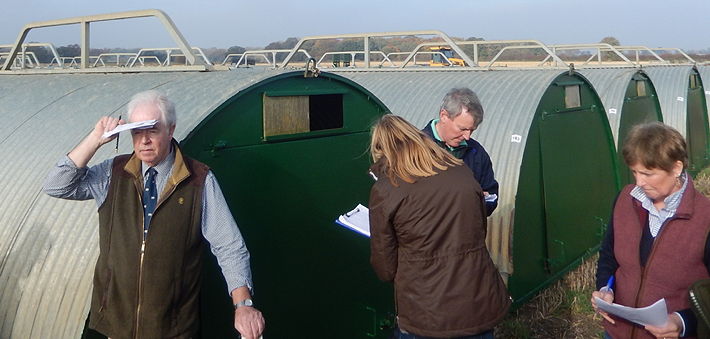Good to note that the SPP continues to move up rising by 3.84p this week to a new record high of 180.57p, rather like the fable of the tortoise and the hare COP levels are continuing to bound ahead for the time being,
The situation in much of the EU remains static with the influential German producer price still stuck at 180 EUR (153p/kg) for the fifth week running and as a result yet more foreign imports are continuing to cross the Channel undercutting the UK market by a significant margin.
However, it was good to see that Cranswick added 5p to their weekly contribution price at the start of the week after this commentary had gone to press and it now stands at 185p, with the other main players who have stood on anywhere between 173p and 190p/kg.
Spot bacon prices have improved to around 160p/kg with premiums for lighter weight gilts, but these prices are still well below the SPP.
Unfortunately cull sow prices are continuing to slump, dropping by another 8p/kg to between 47p – 51p/kg with most now knocking average per head values back to not much more than £65/head at a time when reports of more sow herds being culled are circulating.
The Euro remains little changed at 85p. Contract weaner prices continue to benefit from the recent rises in the SPP and for those producers selling RSPCA Assured 7kg piglets, prices are generally in the £42 – £45/head region.
Spot weaners are still hard to clear except at rock bottom prices due to the ongoing concern over soaring COP levels while most finisher buyers are still in the red, with reports from the AHDB indicating average losses of an eye watering £58 per pig for the first quarter of 2022.
Some breeders/finishers are indicating that they will need 240p/kg to break even based on the latest COP prices, which in many cases are unsustainable leading to further falls in the already shrinking UK pig herd.
Fighting in Ukraine continues to add pressure to almost all elements of the UK pig industry and beyond with highly volatile market price changes adding to all the usual problems producers have to face, as well as keeping their bank managers and suppliers on side.
At the time of preparing this report, one chink of light has been to see some falls in feed commodity prices with UK spot ex farm feed average wheat values easing by £18.20/t to £285.90/t, but this could change in the drop of a hat in such a fickle market,
Futures prices for UK cereals have seen feed wheat traded at £302/t for July and September. Feed barley values continue to fall with September 2022 traded at £286/t.
Hipro soya for July – October delivery has dropped back slightly to £471/t with November – April 2023 at £463/t. Rapemeal has also fallen marginally with July delivery at £329/t down from £338/t over the past seven days.
And finally, a few green shoots continue to appear as far as the UK pig industry is concerned. These include fewer slaughter pigs in the system with lower carcass weights and good BBQ weather forecast for the week ahead, which could convert UK pig producers’ beer glasses from being half empty to half full.
There are also reports from the other side of the globe that Chinese pig numbers have been hit very hard by a new strain of PRRS, which could open up export opportunities while we still have enough producers in the UK pig supply chain, which is at risk of falling apart.
In the meantime there is widespread dissatisfaction in the pig industry of the prime minister taking anything in the way of positive action to limit imports from countries where ASF is an absolute killer but, as the old saying goes, if you employ a clown a circus usually follows!




